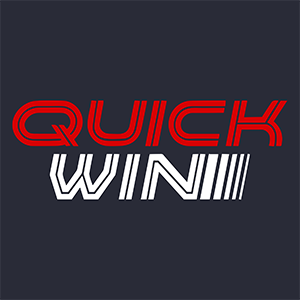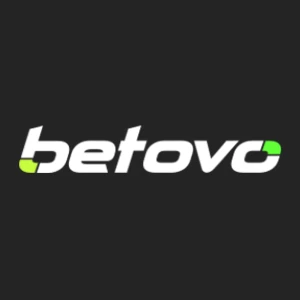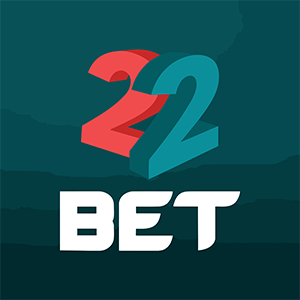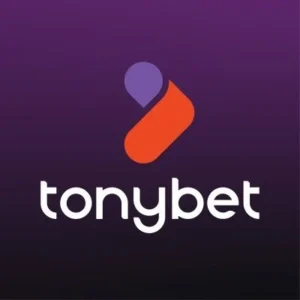Best Betting Sites in Ireland
We are dundalksport.ie, a collection of sports and sports betting enthusiasts who aim to bring you all the details you need to have an enjoyable and potentially profitable online sports betting experience with the very best betting sites in Ireland.
Best Irish Betting Sites 2026
1 |  | QuickWin ⭐⭐⭐⭐⭐ 100% up to €500 + 200 FS | Claim Offer |
2 |  | Betovo ⭐⭐⭐⭐⭐ 100% up to €250 | Claim Offer |
3 |  | FunBet ⭐⭐⭐⭐ 100% up to €100 | Claim Offer |
4 |  | Betista ⭐⭐⭐⭐⭐ 100% up to €250 | Claim Offer |
5 |  | 22bet ⭐⭐⭐⭐⭐ 100% bonus up to €122 | Claim Offer |
5 |  | Tonybet ⭐⭐⭐⭐⭐ 100% up to €100 | Claim Offer |
Irish Betting Sites Guide by Dundalk Sport
Our goal at Dundalk Sport is pretty simple: bring you details of the very best betting sites, betting offer offers, bonuses and user experience, apps, features and more from the top betting sites available to Irish players. We get you the most up-to-date information you need to enjoy placing sports bets in Ireland, including betting strategies to follow, the best sports Irish betting sites to use and what to look and for and enjoy from your online sports betting experience.
Top 10 Irish Betting Sites
Top 10 Irish Betting Sites and how we review and rate Irish betting sites. There are so many sports betting sites out there it can be a little bit overwhelming. That’s why you need dundalksport.ie. We bring you all the key details you need when it comes to selecting a sports betting site that suits your needs. When deciding the top 10 betting sites, for example, this comes down to the following factors:
- How good is the betting site’s sign-up offer for new customers?
- How deep is the variety of sports and markets to bet on?
- What features does the betting site offer for customers to truly enjoy?
- Does the betting site offer dedicated apps to its customers, and do these apps live up to user experience standards?
- What payment options are available, and are they suitable to Irish customers?
- Is the site safe, secure, and fully licensed for players in Ireland?
- What level of customer support does the site offer to players?
At dundalksport.ie, we know that these are the features of Irish betting sites that truly matter and add value. So we recommend the best betting sites in Ireland based on these criteria.
Top must-have online betting Features
For us at dundalksport.ie to truly recommend a sports betting site, it must have certain features that we know customers love and that truly add value. Here’s what we look for:
Live Betting: In this day and age, it simply wouldn’t be acceptable if a site didn’t offer up the chance for customers to place live bets, also known as in-play betting. It’s often when the event goes live that things truly start to get interesting.
Live Streaming: Does the site offer up the chance to watch the events the customers are placing bets on? And does this extend to the app so you can watch truly on the go? The best betting sites are those often with the best betting apps.
Cash Out: Cashing your bet out early is an option we demand. No longer should you have to wait to the bitter end, but instead, with this option, you can be strategic, cashing out when it makes sense to do so.
Bet Builder: Can you tailor bets to your expectations? We’re not just talking about accumulators (also known as multi-bets), we’re talking about combining outcomes on a single event to really benefit from the money you stake at the best betting sites in Ireland.
Accumulator Bets: Does the bookmaker provide the option to add up multiple bets across sports and markets, and does it offer additional enticements to do this? This is what we look out for from the best betting sites.
In-Play Betting: That’s live betting! It’s essential for the best betting sites.
Placing online sports bets and using online casinos is totally legal in Ireland under the provisions of the Betting (Amendment) Act of 2015. This is updated legislation built upon the old betting act that has long allowed the placing of bets in Ireland. We also check out if a site possesses all of the necessary licenses and safety protocols to ensure a safe and secure betting experience. Quite simply, we won’t recommend best betting sites without everything in place. Betting sites Ireland is a safe space to be playing.
Did you know that with the best betting sites available in Ireland, you can pretty much bet on any sport known to man? From football to GAA, from hockey to badminton, there’s not an event happening around the world that you won’t be able to find. Here we look at some of our favorite sports and the best betting sites delivering the best betting experiences on those sports:
Sports to bet on
Soccer Betting:
Probably the biggest sport in the world, it’s no surprise that no discerning sports betting site will forget to provide a massive array of markets on soccer, very often listed as football, of course. From the biggest competitions such as the World Cup, Champions League, and Premier League to matches in the Ghanaian second division, you will find a betting site giving you that option. Most football betting sites will give odds on the League of Ireland and pretty much anything else you want to find – the best betting sites have to. And the very best football betting sites will offer up so much more besides.
Our best sites for soccer betting:
Bet365: A staggering array of markets
Fansbet: An innovative new site that gives back to the sport and good causes
888sports: Brilliant promotions on soccer
Our top bookie for soccer betting:
PaddyPower: It’s got the lot, making it, of course, one of the best betting sites in Ireland.
Horse Racing Betting:
A massively popular sport in Ireland and the UK, there are horse racing events on daily which enthusiasts can follow and bet on with the best horse racing betting sites. Get tonnes of extra too like form guides, plus live races. Horse racing betting really is one of the most exhilarating sports betting experiences out there and the best horse racing betting sites have the lot! Bet on the Cheltenham Festival, get grand national betting, Irish grand national 2024 betting, Royal Ascot odds, and Galway races promotions, all with the best horse racing betting sites.
Our best sites for horse racing betting:
Bet365: A staggering array of races and markets, as you would expect
22bet: Some of the most competitive odds you will find on horse racing, anywhere, plus great options
PaddyPower: It’s fun fun fun with Paddy and horse racing, plus great promotions. Horse racing sites don’t get better than this
Our top bookie for horse racing betting:
22bet: This site breathes horse racing, with the best price guaranteed, live streaming, form guides, and more, making it one of the best betting sites out there.
GAA Betting
GAA is a sport beloved in Ireland, and it’s no surprise that to get the best GAA betting experience online you really have to zoom in on those betting sites dedicated to Irish punters, such as Irish betting sites themselves, such as BoyleSports, PaddyPower, and QuinnBet. Some of the big British bookmakers such as bet365, William Hill, and Ladbrokes will also offer up markets on GAA, so there’s no need to miss out. Betting sites Ireland must include GAA, and the GAA betting sites of course must include hurling and football (often listed as Gaelic football). Here are our best GAA betting sites.
Our best sites for GAA betting:
Bet365: Good options for GAA, combined with the superb bet365 all-round package
QuinnBet: An Irish site that knows what it takes with GAA
BoyleSports: Brilliant coverage of GAA as you would expect from one of the world’s best betting sites.
Our top bookie for GAA betting:
PaddyPower: It has to be an Irish site for the best GAA betting experience.
Rugby Betting
Another sport that is much loved in Ireland but has a more limited global appeal is rugby union. However, with many of the biggest sports rugby betting sites emanating from Ireland or the UK, you can be sure that most of the top sites will offer up fantastic options on both rugby union and rugby league, especially on the top tournaments such as the Six Nations and United Rugby Championship.
Our best sites for rugby betting:
Bet365: A staggering array of markets as usual, and great in-play markets from one of the world’s best betting sites.
BoyleSports: Great pre-event and in-play options
William Hill: Brilliant promotions on soccer from one of the best betting sites out there.
Our top bookie for rugby betting:
RHINO: A real surprise when it comes to rugby.
Greyhound Betting
Greyhound racing has long been an institution in Ireland and we know that Irish punters are attracted to this sport, even if it’s only for a fun night out from time to time. Greyhound betting is something we know Irish customers look for and we like to see sites offering up options to bet, as well as live streaming and form guides, and not just for the biggest events such as the Irish Greyhound Derby. You’ll be glad to know that these are all options that you can find from the best greyhound betting sites.
Our best sites for greyhound betting:
Bet365: Loads of greyhound racing options, just as you would expect.
Ladbrokes: A British classic that just loves the dogs.
PaddyPower: Promotions on greyhounds that you will love.
Our top bookie for greyhound betting:
Skybet: So much choice, and the chance to watch nearly every race, wherever it is.
Darts Betting
A much-loved sport and a great sports betting experience, darts is massive with Irish sports fans and betting enthusiasts. You’ll be happy to know that betting on darts can be done to your heart’s content with most of the best Irish betting sites, and that includes some of the lesser-known events as well as the big competitions such as the PDC World Championship.
Our best sites for darts betting:
BoyleSports: Huge variety, fun promotions, and loads of markets
22bet: Some of the most competitive odds on darts you will find anywhere
PaddyPower: Paddy loves darts and the promotions can be great.
Our top bookie for darts betting:
Bet365: Features and market options that few can match.
The best betting bonuses, promotions, and betting offers
Did you know that when you sign up with a sports betting site you will get an attractive new customer sign-up bonus? It’s true. Every site out there will offer you something for free when you sign up, so one of our most important jobs at dundalksport.ie is to let you know what those offers are and how you can enjoy them. Here we run through some of the most popular offers out there that you will find with the best betting sites.
Matched deposit offers
Lots of sites will claim something such as ‘100% up to €100’, or along those lines. What that means is that the site will match your first deposit amount up to a maximum of €100. So if your first deposit amount is €10, you will get an extra €10 credited into your account to play with. Now, there will be plenty of terms and conditions attached to that, and we’ll always run you through those, but this is a great enticement from some of the best betting sites.
Get money if your first bet loses
Some of the best betting sites will claim offers such as ‘Get up to €50 in free bets if your first bet loses’. What this means is that the amount you stake and lose on your first bet with the site will be recredited, as long as that amount does not exceed €50 in this particular case. So that means that your first bet is, in essence, a free bet with that sports betting site.
Reload bonuses
Reload bonuses mean that you will be rewarded for topping up your account. The amounts may vary from site to site, but this equates to free cash to bet with (again with plenty of terms and conditions to follow). Betting sites in Ireland often provide this option.
Free bet offers
You’ll find that once you are a customer with a reputable betting site, you will from time to time be given free bet opportunities that are credited to your bonus account. The number of these will vary and depend very much on how often and how much you are betting with the site, but this is what you should expect from the best betting sites.
Some examples of bookmaker free bet offers when signing up:
- Quickwin: Get 100% up to €100
- 22bet: 100% welcome bonus
- Greatwin: Get 100% up to €100
- Bwin: Personalized offers
- Betway: Get up to €50 in free bets if your first bet loses
Payment options available at Irish bookmakers
Online betting sites reflect the world around them, and that’s especially true when it comes to the payment options available to customers. People don’t like being restricted to one option, and everyone has their favorite. Here are just a few of the most common payment options you will find available at the best sports betting operators in Ireland:
PayPal
A long-established crowd favorite, most sites offer customers the opportunity to deposit and withdraw directly to their registered PayPal account.
Revolut
The new kid on the block and the fastest-growing payment method on the market, Revolut has made it to Irish betting sites, you will be happy to know, and offers up an incredibly convenient way to deposit your account.
Visa and Mastercard
Prefer the slightly old-fashioned way of depositing and withdrawing to your bank account via your debit card, or availing of your credit card? Then work away with both Visa and Mastercard options.
Neteller and Skrill
Ewallets have long been a popular option when paying online, and that has long since been true for online gaming. Skrill and Neteller are the big boys in the space and you will find these available at pretty much any betting site worth its salt. Please note that processing times here can be a little longer, and often customers who deposit via this method cannot avail of the new customer sign-up offer, although there are usually added bonuses attached agreed directly between the Ewallet and the operator.
Paysafecard
Prefer the protection that a prepaid card offers? Great for controlling your spending limits, it’s good to see that most of the bookies in Ireland still provide this option.
All Crypto
Yes, crypto has of course made it to the sports betting industry. Not every operator will provide this option due to the slightly unregulated nature of it, but if you want a provider that does, you’ll definitely find one pretty easily.
Best betting apps in Ireland
As more and more bettors engage on mobile devices, it’s no surprise that in recent years we have seen an explosion in the number of betting apps available. And let’s be honest, if you’re out and about betting on the go, a responsive app is what you’re looking for, rather than a more clunky website. Get dedicated betting apps for iOS and Android, and enjoy all your favorite features and bonuses. Here are a few that we recommend:
Bet365
Bet365 has a staggering array of sports and markets to bet on, and these are all available on the app. Get all the site’s best features too, including stats and results, live streaming, bet builders and cash out, plus more besides.
22bet
22bet has a massive variety of sports and markets, both pre-event and in-play, and the app brings all of those, along with competitive odds, to the palm of your hand.
BoyleSports
A much-loved Irish bookie with an app that brings all of the promotions, features, and markets right there to you wherever you are.
What is the fastest payout betting site in Ireland?
It’s difficult to say which sports betting operator provides the quickest payouts because there are a number of factors to consider, including the method of payment and size of the withdrawal. However, most of the best sites are transparent about their processing times, which you can expect to number 1-5 business days depending on the method. Things to look out for include: Can you make a withdrawal using the same method that you used to deposit? Is there a processing fee? (most sites will not include a processing fee, but again it will depend on the method) How good is the customer support mechanism if I need to get in touch? (Again, dudalksport.ie checks out the quality of the customer support options available so you can go in with your eyes wide open)
New Betting Sites in Ireland
Did you know that every year more and more great sports betting sites are entering the sports betting scene and offering up fresh and competitive opportunities to punters? Yes, it can be a saturated space, but the good news is that, with the help of an expert site such as dudalksport.ie, you can find the sites that are truly offering up exciting and value-laden opportunities. Here is just an example of some of the newer players on the scene.
- Quickwin – Get 100% up to €100 (Launched in Ireland: 2022)
- 22bet – 100% welcome bonus (Launched in Ireland: 2018)
- Greatwin – Get 100% up to €100 (Launched in Ireland: 2022)
Best Irish betting sites with live streaming
Did you know that a number of Irish betting bookmakers offer up the opportunity to watch the sports events you are betting on? Some sites give the option to watch literally hundreds of sports events daily, ranging from soccer to tennis to horse racing and beyond. The terms and conditions of this may vary, for example, with some sites you only need to be logged in to your customer account to watch, while with others you may need to place an active bet on the event to get access to it. There’s no doubt that live streaming is a great enticement for sports and betting fans, giving your bet an extra value of excitement as you can see the event unfold.
Top sites with live streaming
There are plenty of live streaming sites options for customers, including the likes of bet365, PaddyPower, BoyleSports, Quickwin, Betway, 22bet, and Greatwin. Log in to your account and explore to see
A host of online betting sites offer up free bets to new customers, so check out Dundalk Sport where we provide information on the very best online sports betting operators and the current offers available so you can avail of free sports bets.
Payout times with Irish betting sites may vary depending on the method of payment. Often payout can be almost instantaneous, but most sites will give you their payout times which can vary from 1-5 business days.
Winnings on bets in Ireland are not taxed, so you do not have to declare these winnings.
The best betting sign-up offer can be very subjective – what do you want from your offer? It’s not the easiest question to answer because some people prefer increased returns on their bet, while others like free bet options or money-back promotions. That’s why at Dundalk Sport we give you details of many of the best betting sign-up offers, so you can decide what fits the bill for you.
Most of the very best betting sites online and sports betting operators will give you the chance to deposit and withdraw using a variety of payment options, including, but not limited to, debit and credit cards, Ewallets, PayPal, Revolut, and even crypto.
Sign-up with a sports betting site and bet away. Also in Ireland, you find high-street bookmakers where you can go in and place a bet. Online betting sites require that it is always necessary to register an account first to comply with anti-money laundering practices.
Betting, including online betting sites, is provided for in Ireland under the terms of the Betting (Amendment) Act of 2015. This updates early legislation and means operators can provide services in Ireland under a full or remote licence. Always use a fully licensed and regulated bookmaker.